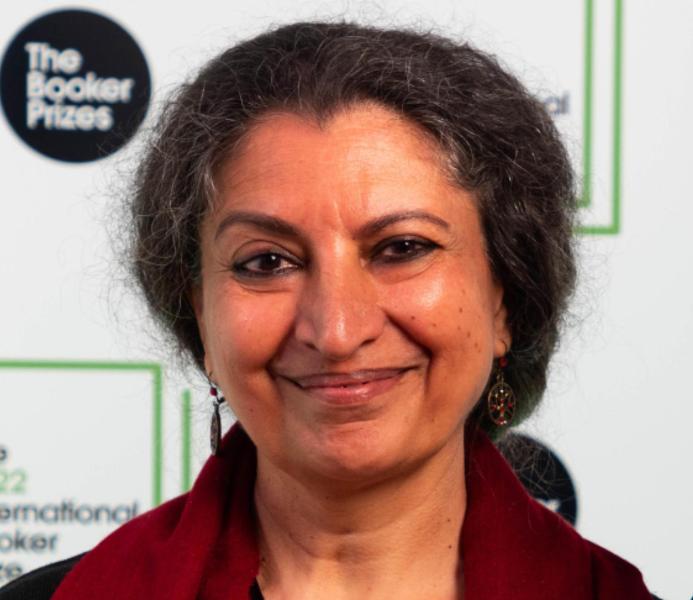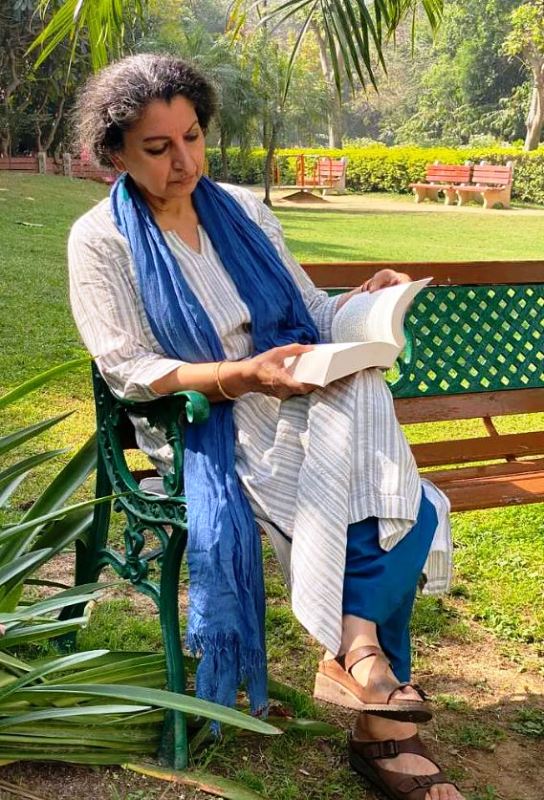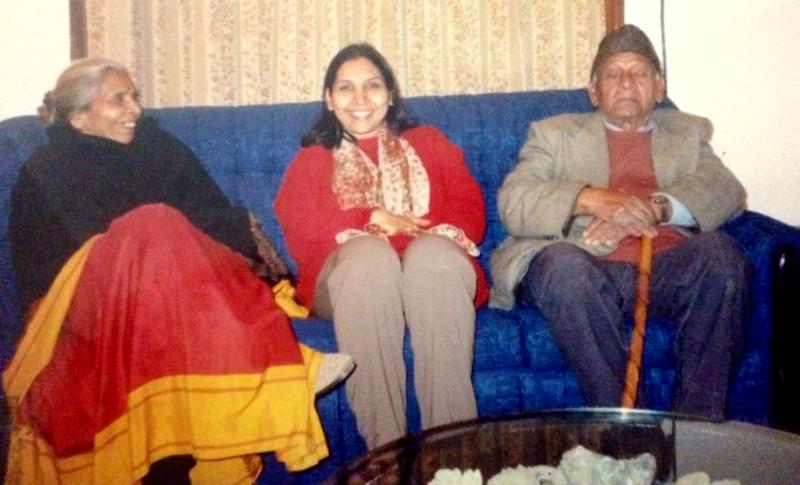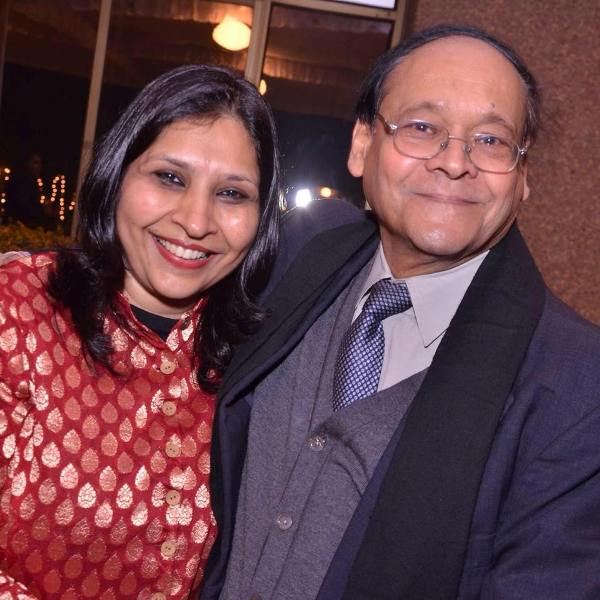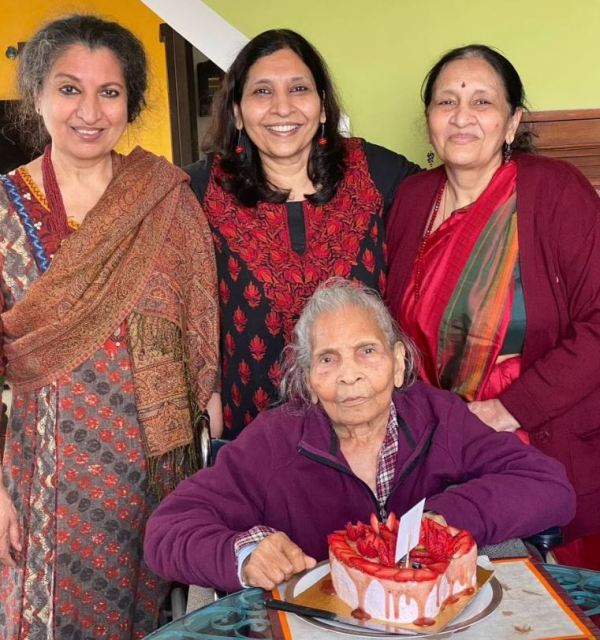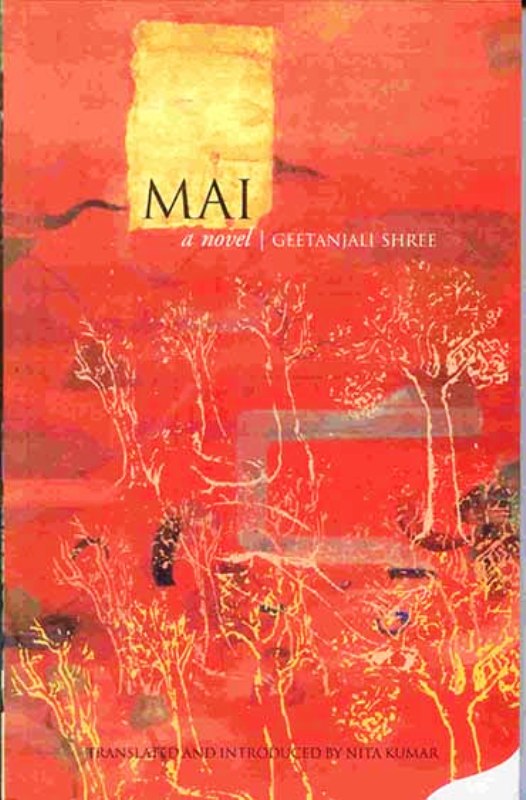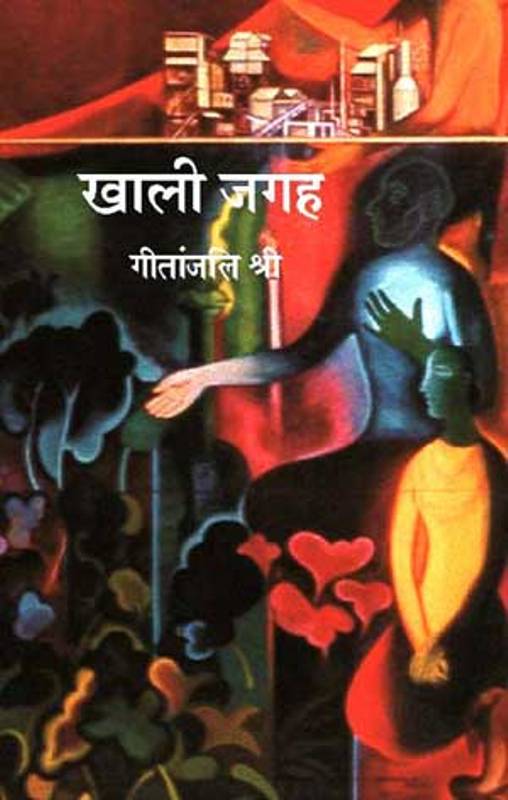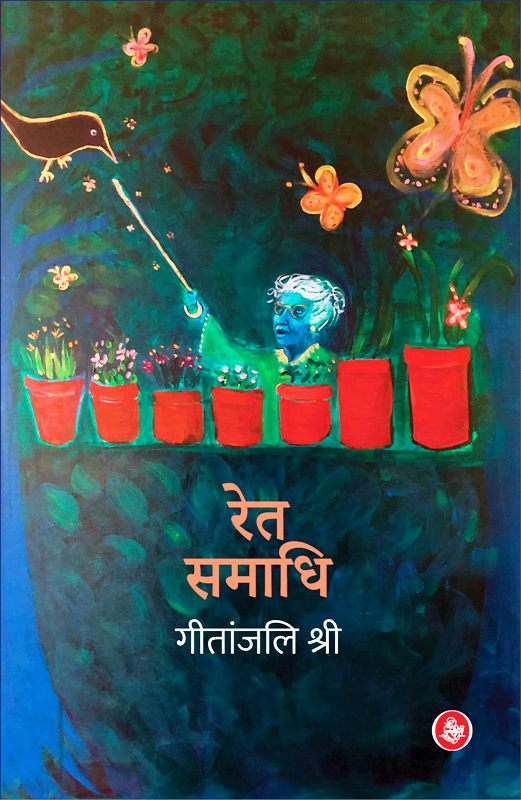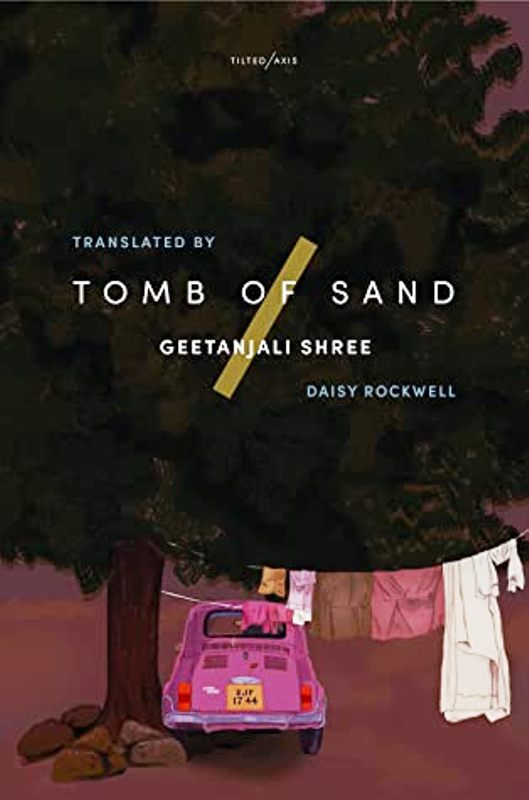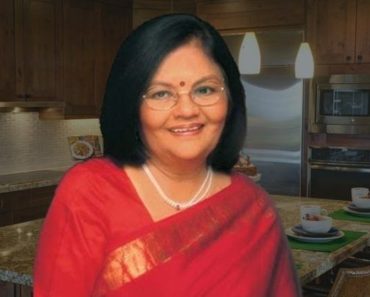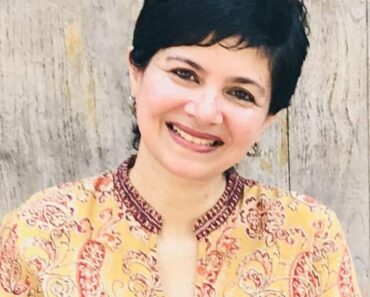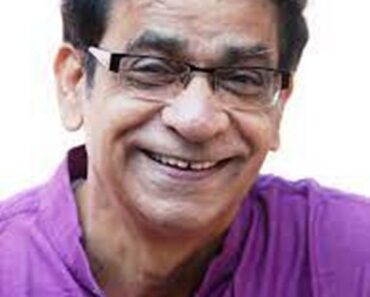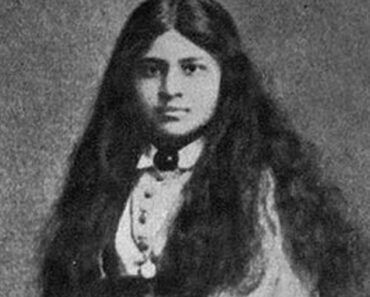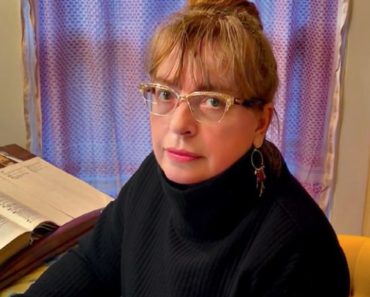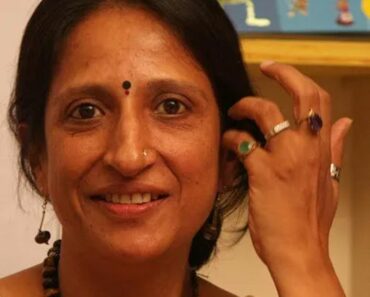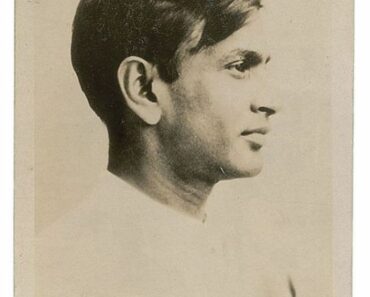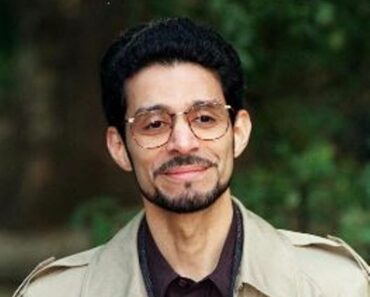Geetanjali Shree is an Indian novelist and short-story writer who is well known for her Hindi-language novel ‘Ret Samadhi’ (2018), which was translated into English as ‘Tomb of Sand’ by Daisy Rockwell. Shree rose to prominence in 2022 when ‘Tomb of Sand’ won the prestigious International Booker Prize.
Contents
Wiki/Biography
Geetanjali Pandey [1]Amazon was born on Wednesday, 12 June 1957 (age 65 years; as of 2022) in Mainpuri, Uttar Pradesh, India. Her family hails from Ghazipur District, Gondaur village, Uttar Pradesh. Her zodiac sign is Gemini. Shree spent her childhood in different towns in Uttar Pradesh, as her civil servant father was often transferred. Shree did her schooling in the local English-medium schools of UP, but her Hindi speaking household in the backdrop of UP saturated her in the Hindi Language. Geetanjali Shree was a voracious reader since childhood, and she grew up reading various Hindi novels like Panchatantra, Chandamama, Parag, and Nandan. Interaction with prolific Hindi and Urdu writers like Sumitranandan Pant, Firaq Gorakhpuri, and Mahadevi Verma while growing up in Allahabad developed Shree’s interest in Hindi literature. Additionally, Shree was friends with Munshi Premchand’s granddaughter; Premchand was a celebrated Indian writer who is known for his contribution to Hindi literature. While recalling Premchand’s household in an interview, she said,
My very close friendship with Munshi Premchand’s granddaughter and close links from my childhood on with her entire family, I think, played a very positive role in sensitising me to ‘culture’. Theirs was a household full of practitioners and learners of Indian music and literature.”
Her obsession with Premchand’s works later served as her thesis topic for obtaining a PhD. She moved to Dehli to pursue her higher education. Despite being intrigued by Hindi literature from the beginning, she opted for History due to the absence of formal courses in Hindi. She pursued a Bachelor of Arts at Lady Shri Ram College For Women, University of Delhi, New Delhi. Thereafter, she enrolled herself in Jawaharlal Nehru University, New Delhi, where she pursued a Master of Arts in Modern Indian History. She obtained her PhD degree in 1984, writing her thesis on the topic ‘Social and Intellectual Trends in Colonial India: A Study of Premchand’. [2]The Times of India She converted the compilation of her research work about Premchand’s literary works into a book, which marked her beginning as a writer.
Physical Appearance
Height (approx.): 5′ 5″
Hair Colour: Salt & Pepper
Eye Colour: Dark Brown
Family & Caste
Geetanjali Shree belongs to a Brahmin Hindu family. [3]Kalam- YouTube
Parents & Siblings
Her father, Anirudh Pandey, was a civil servant. Her mother’s name is Shree Kumari Pandey. She has two sisters, Jayanti Pandey and Gayatri Shukla, and two brothers, Gyanendra Pandey and Shailendra Pandey.
Husband & Children
Geetanjali Shree is married. Not much is known about her husband and children.
Career
Writing
After completing her formal education, she started teaching History at Jamia Millia Islamia and Zakir Husain College in New Delhi. Thereafter, she started delivering History lectures in English, meanwhile writing her novels in Hindi, but oscillating between the two languages left her frustrated. Soon after, she resigned from her teaching job as her husband supported her decision to become a full-time writer. She embarked on Hindi literature with short stories and wrote her first story while travelling on a train with her husband. While talking about the same in an interview, she said,
I was taking a train journey with my husband and asked myself what had I written so far if I want to be an author. With that dilemma, I wrote my first ever story on that train itself. When my husband read the story, he said it didn’t seem the writer was penning a story for the first time. That’s how the journey began.”
A leading Hindi publishing house named Rajkamal, which Sheela Sandhu then headed, kickstarted Shree’s career in the 1980s. Her first short story ‘Bel Patra’ was featured in the prestigious Hindi-language magazine Hans in 1987. She published her first collection of short stories titled ‘Anugoonj’ in 1991. In 2001, she came into the spotlight when her debut novel, Mai, was shortlisted for the Crossword Book Award. The novel gives a glimpse into the life and consciousness of Mai (the mother) in a North Indian middle-class family as seen through the eyes of her daughter.
Nita Kumar, who translated the novel into English, earned a Sahitya Akademi Translation Prize for it. Mai was also translated into numerous other languages including Serbian, Urdu, French, German, and Korean. Shree’s second novel, Hamara Shahar Us Baras, narrates the events which happened in the aftermath of the Babri Masjid demolition in 1992. Other acclaimed novels penned by her include Tirohit’ (2001) and Khālī jagah (2006).
Khālī jagah was translated into English as The Empty Space (2011) and into French as Une place vide (2018). She rose to popularity with her 2018 novel ‘Ret Samadhi,’ which humorously depicts the tale of an 80-year-old Indian woman who is turning into a defiant teen day by day and insists on going on a journey to Pakistan after the demise of her husband.
Ret Samadhi’s translation into English as ‘Tomb of Sand’ by Daisy Rockwell led to Shree’s international recognition. On 26 April 2022, Tomb of Sand became the first Indian book to win the International Booker Prize. [4]The Booker Prizes The writer translator duo received a literary prize of 50,000 pounds, which they split evenly.
Other literary works under her belt include Agyey Kahani Sanchayan, Vairagya, and The Roof Beneath Their Feet. Apart from novels, Shree has also written various academic publications like “Premchand and Industrialism: A Study in Attitudinal Ambivalence”, featured in the journal The Indian Economic and Social History in 1982, “Premchand and the Peasantry: Constrained Radicalism,” featured in the journal Economic and Political Weekly in 1983, and “The North Indian Intelligentsia and the Hindu-Muslim Question,” featured in the Journal of Regional History 1993.
Theatre
Since 1989, Shree has also been actively associated with the cultural theatre group called Vivadi. She adapted Rabindranath Tagore’s novel Gora into a theatrical production. Her theatrical adaptation of Tagore’s novel ‘Ghare Baire’ was staged at the Kamani Auditorium in New Delhi. Shree is also known for adapting the Chinese play Lao Jiu: The Ninth Born by Kuo Pao Kun into a Hindi theatrical production titled ‘Navlakha’. The play was staged at the New National Theatre, Tokyo, as part of a festival that staged three different plays of Kuo Pao Kun by groups from Japan, India and Indonesia. Not only did the Japanese audience enthusiastically respond to Shree’s adaptation, Kuo Pao Kun himself liked the transcreation. She penned the plays, Nayika Bheda, which was staged at the Prithvi Theatre in Mumbai, and Sundari, the story of a male actor Jaishankar Sundari from Gujarat who was known for playing the female lead. One of her most successful adaptations is Mirza Hadi Ruswa’s ‘Umrao Jan Ada,’ an Urdu classic novel which narrates the life of a courtesan. Turing over the male vision of the novel’s original text, Shree attempted to give a radical feminist reading of the text. The play was first staged at the Shri Ram Centre for Performing Arts, New Delhi, in December 1993. Immensely popular, the play was later presented in various cities in India including Bombay and Kolkata. Additionally, it was also filmed to telecast on TV. An English adaptation of Shree’s ‘Umrao Jaan Ada’ was performed by a group called Rasik Arts at Tarragon Theatre in Toronto.
Awards, Honours, Achievements
- Indu Sharma International Katha Samman
- Krishna Baldev Vaid Sammaan (2014)
- Hindi Akademi Sahityakar Samman
- Dwijdev Samman
- International Booker Prize (2022)
Favourites
- Book(s): The Mahabharata, Soul Mountain by Gao Xingjian, Maila Anchal by Phanishwar Nath Renu, Things Fall Apart by Chinua Achebe, Basti by Intizar Hussain, Gora by Rabindranath Tagore
- Singer(s): Mallikarjun Mansur, Amir Khan
- Writer(s): Krishna Sobti, Nirmal Verma, Intizar Hussain, Krishna Baldev Vaid, Shrilal Shukla, Vinod Kumar Shukla
Facts/Trivia
- Geetanjali Pandey changed her name to Geetanjali Shree, taking the first name of her mother as her last name. [5]Outlook
- Besides pursuing his government job, Shree’s father also did writing. He wanted Shree to become an IAS officer. He did not support Shree’s decision to pursue a career as a Hindi author. He was of the opinion that a prosperous future lies only in English writing. While talking about the same in an interview, Shree said,
My father was of the opinion that I’ll ruin my life if I wrote in Hindi. He would say that the future belongs to English…I studied in English medium but my mother spoke Hindi and that language was my mother tongue. It was the post-freedom era and people of the country felt love towards their own language. During that time, we even got to hear many Hindi fiction writers.”
- She is a fan of vintage Bollywood music.
- In an interview, while listing the wide variety of literary works that she has read over the years, she said,
Reading was a major pastime. Very haphazard though it was. Lots of the Russian greats, the Victorian women greats, French classics, an odd Knut Hamson here, a Max Havelaar there, later Calvino, Kafka, Kundera, Latin American literature, Japanese literature, Indian writers of Bengal, Maharashtra, Karnataka, Kerala, and Hindi writers upto my own times, like Krishna Sobti, Nirmal Verma, Shrilal Shukla, Vinod Kumar Shukla, etc..”
- In an interview, she revealed that she never learnt creative writing. She said,
No, I did not learn creative writing!…Like an Indian! I learn on the job! And get better and better!”
- In an interview, she revealed that she has an unfinished book titled ‘The Name of the Rose.’
References
| ↑1 | Amazon |
|---|---|
| ↑2 | The Times of India |
| ↑3 | Kalam- YouTube |
| ↑4 | The Booker Prizes |
| ↑5 | Outlook |

